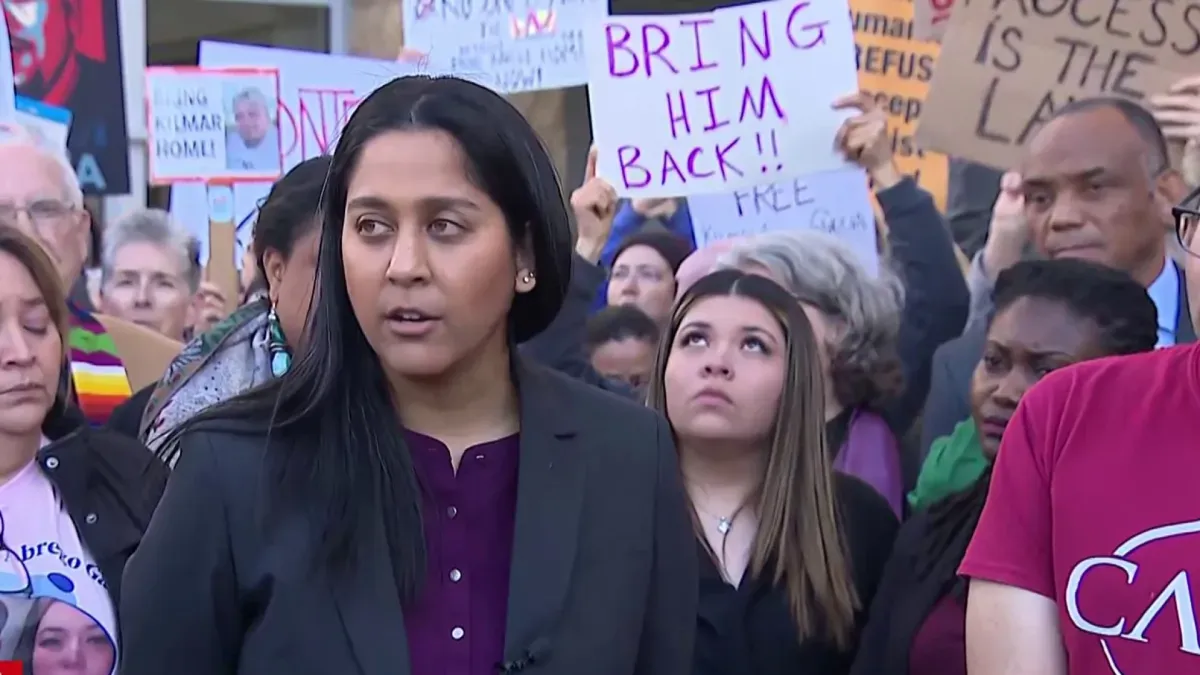Judge Confronts Trump DOJ Over Abrego Garcia Deportation, Courtroom Falls Silent
Courtroom heated as Judge Xinis questions DOJ over wrongful deportation of Kilmar Abrego Garcia amid protests advocating his return.

U.S. District Judge Paula Xinis delivered a forceful rebuke to Trump administration attorneys during a tense hearing on Friday, scrutinizing their handling of Kilmar Armando Abrego Garcia’s deportation case. Abrego Garcia, a Salvadorian migrant and alleged MS-13 member, was deported from Maryland to El Salvador in March. The administration has admitted the deportation was executed in error.
The hearing was marked by sharp exchanges between Judge Xinis and Justice Department lawyers, who attempted to invoke the state secrets privilege in order to withhold details about the case. Judge Xinis expressed open disbelief at this tactic, questioning its legitimacy: "What world are we living in? What sort of legal world are we living in?" she asked after more than two hours of heated debate.
Contentious Legal Arguments
- Xinis repeatedly challenged the government’s assertion that Abrego Garcia was lawfully detained and deported.
- Justice Department attorney Jonathan Guynn faced interruptions as the judge demanded direct answers: "You didn’t even respond to what I just said," she remarked sharply.
- Officials admitted there was no lawful basis or removal order authorizing Abrego Garcia’s deportation.
At multiple points, Judge Xinis openly mocked the lack of clarity from the Trump administration, noting the repeated use of “I don’t know” responses in official depositions. As tension mounted, she emphasized that the legal procedures for deportation had been bypassed: "Congress has set out that process, the executive has to follow that process," she stated, referring to the Immigration and Naturalization Act.
Government’s Position Disputed
Despite the courtroom confrontations, government lawyers continued to insist Abrego Garcia's removal was legal—a stance Judge Xinis flatly rejected several times. "No, he was removed unlawfully," she replied, expressing visible frustration at the Justice Department's arguments.
Central to the dispute was the government’s attempt to shield records under the state secrets privilege. Judge Xinis criticized their approach, specifically denouncing the reliance on a footnote referencing another case as legally insufficient for her court. She again highlighted prior admissions that the deportation had lacked lawful authority.
“He was removed in error. He was sent to El Salvador when there was a notice of withholding of removal, and so that was not lawful,” Xinis concluded, calling the unlawful nature of the deportation “a foregone conclusion.”
Mounting Pressure and Next Steps
- Plaintiffs pointed out that while more than 1,100 documents were deemed privileged by the government, they received only 164—with many being duplicates of their own filings.
- Abrego Garcia’s attorneys pressed the court to act quickly, emphasizing that “a life is in the balance.”
- Judge Xinis indicated she would likely grant an extension for further filings but made clear further obfuscation would not be tolerated.
Previously, Judge Xinis has chastised the administration for “vague, evasive and incomplete” submissions, accusing officials of “willful and bad faith refusal to comply with discovery obligations.” Following the fraught hearing, she said she would issue a written order outlining the next steps after private discussions with both parties.
